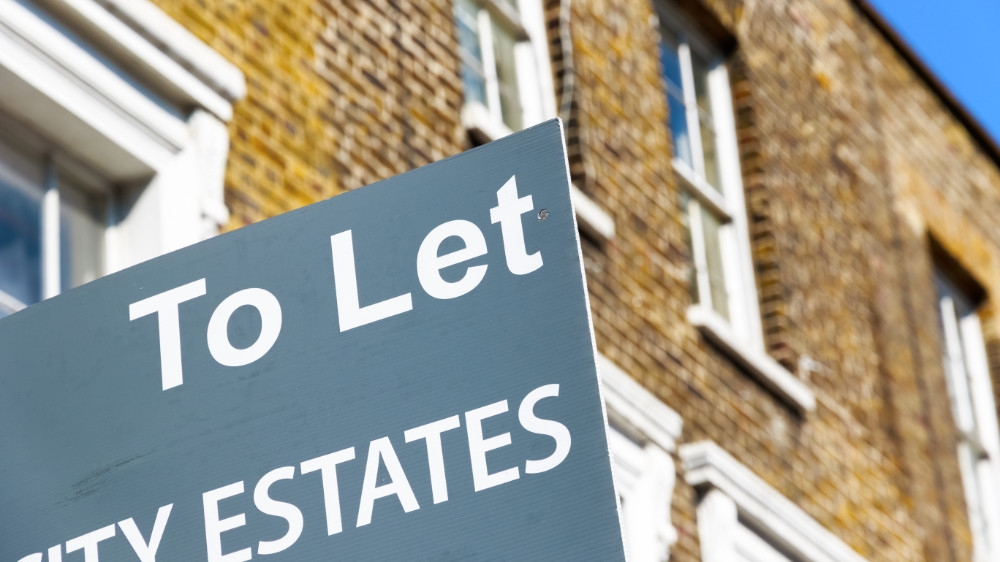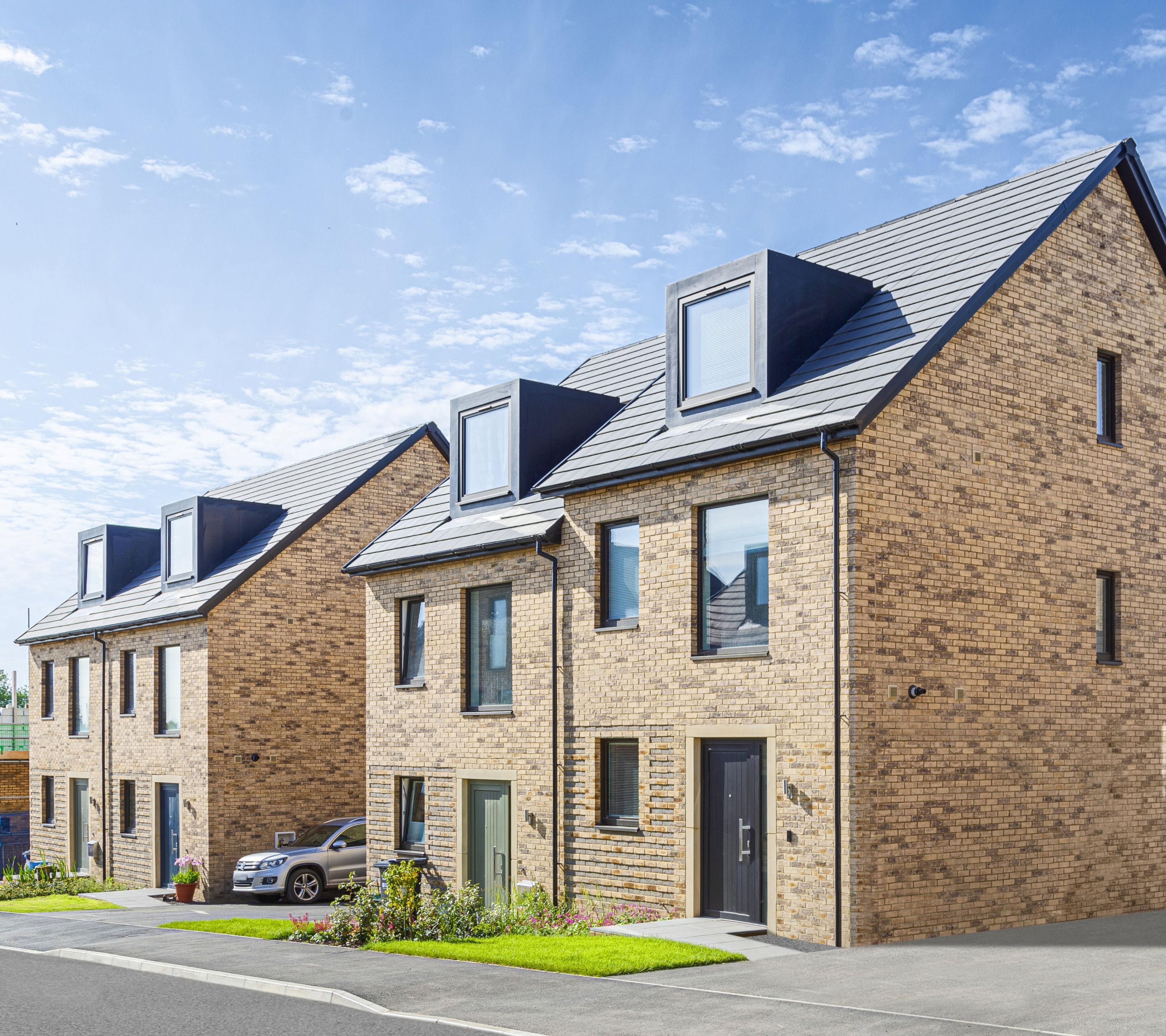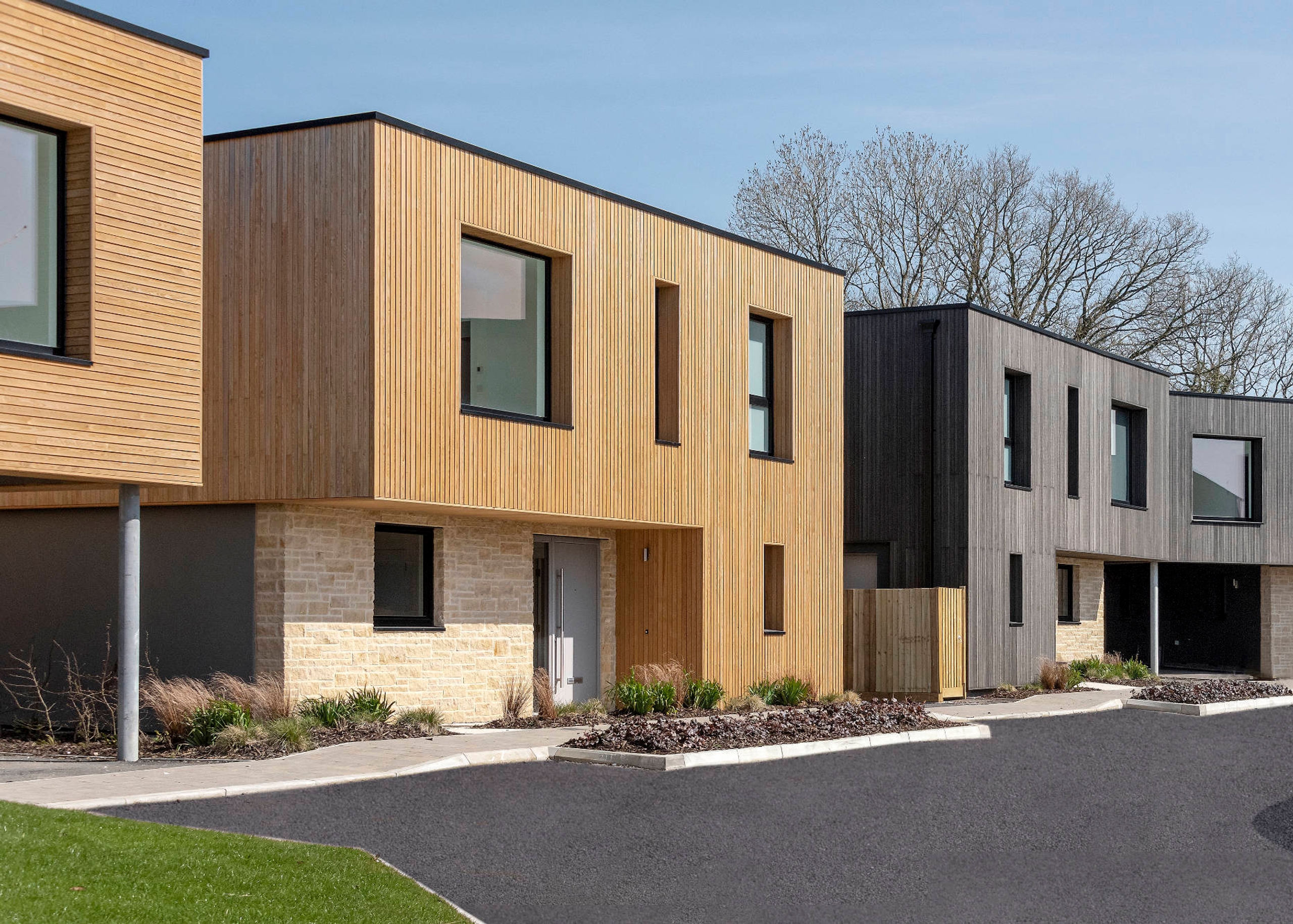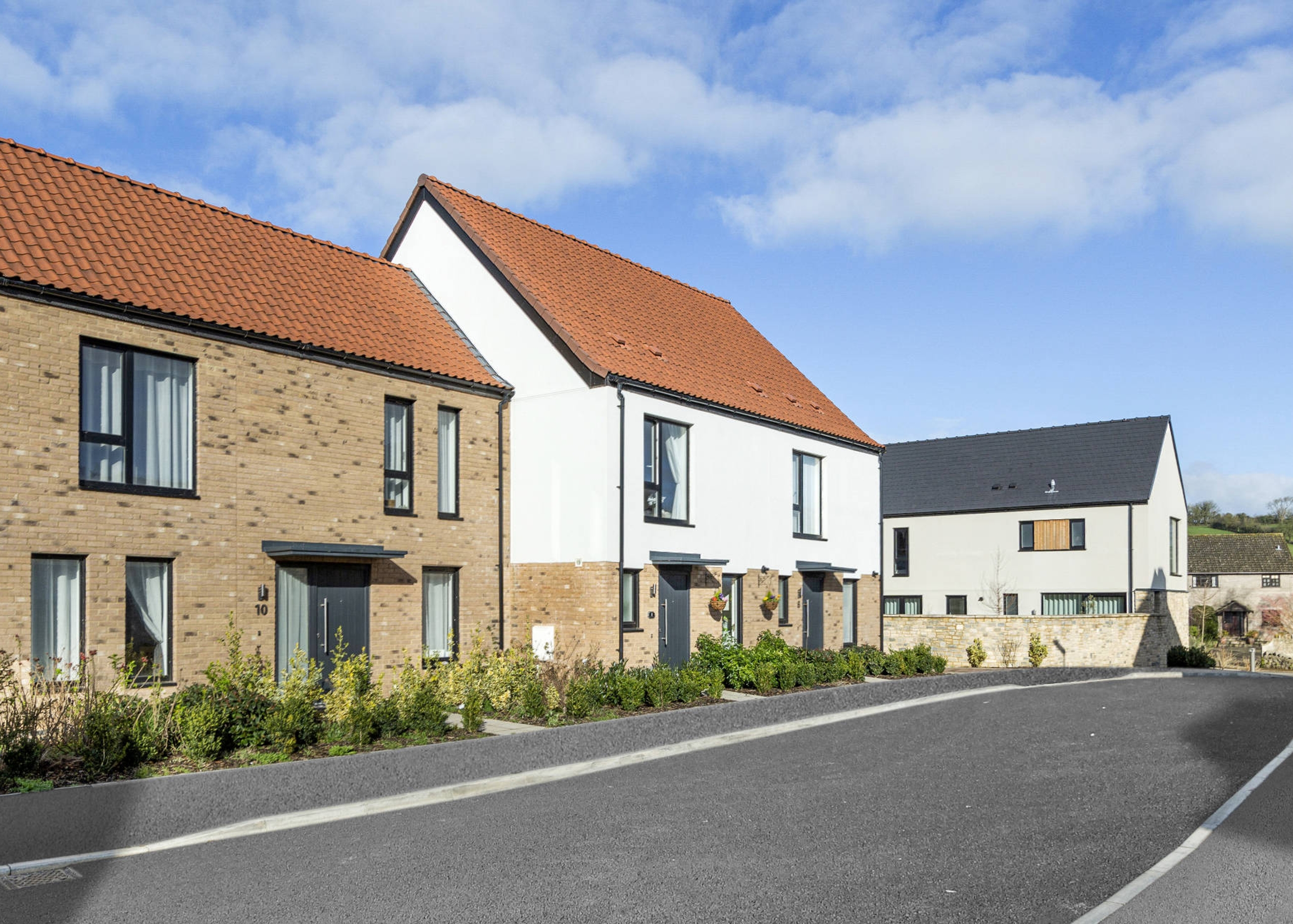Is Buy-To-Let worth it?
Is Buy-To-Let worth it? Read our property investment guide and learn whether it's the property investment that's right for you

A varied, balanced portfolio of alternative investments to stocks and bonds can be beneficial if you're looking to spread investment risk. Alternative investments can include high-risk options, such as cryptocurrency and private equity funding, through comparatively low-risk options, such as property investment.
One of the more common routes into property investment is Buy-To-Let.
It's worth knowing that Buy-To-Let isn't the only route into property investment. Innovative investment products such as those offered by Acorn Property Invest allow investors to fund sustainable new homes without the hassle of becoming a landlord or associated costs such as management fees or paying Capital Gains Tax on any future property sale.
So, is a Buy-To-Let worth it – especially in the wake of UK property price growth slowing and changes to tax, such as the 3% stamp duty surcharge and reduced mortgage interest relief for landlords.
Despite this, property investment is seen as a more stable and predictable investment over the long term, with the potential for steady, regular income and capital growth being tempting outcomes.
But if you are curious whether Buy-To-Let is worth it, our handy property investment guide can help.
What is an investment property?
Investment property is any property bought to make invested capital generate returns, such as through income from rental earnings or capital appreciation. Most property purchases for investment aim to realise a return on the invested amount. This can be over the short or long term, but generally, Buy-To-Let is seen as a long-term commitment that ties your capital into a property and is primarily used to generate income over that period while preserving or growing the money invested.
Buy-To-Let property can be houses, flats, land, parts of whole buildings, or commercial premises. Owners of an investment property can be a single investor, a group of them, or a corporation.
What is a Buy-To-Let investment property?
A long-term property investment option, investors purchase Buy-To-Let properties and then rent the space out to tenants, effectively becoming landlords.
The rent collected through a Buy-To-Let property ideally covers the initial cost of the property or meets mortgage repayments, including interest, management and maintenance fees, with some profit left over as income.
Buy-To-Let properties can be an investment opportunity for those looking to increase their capital through passive income and generate funds that they can reinvest to create a property portfolio.
Is Buy-To-Let worth it?
There are several benefits to investing in a Buy-To-Let, though some significant drawbacks balance these.
1. It can be a regular source of income
Once you rent out your Buy-To-Let property, you can usually regularly collect rent from the occupants.
Regular rental income can create financial security and make future financial planning easier, especially if you have long-term tenants. Once you recoup the original amount invested into the property, you can begin to profit from your investment while retaining the property's capital value.
2. Your capital may increase with the property market
Although house prices fluctuate over time, property can still be a solid long-term investment and beat inflation, seeing capital growth in real terms.
The average UK house price increased by 13.6% over the past year to around £296,000. Owning a property for at least ten years can increase your chances that its value will also increase by the time you want to sell it and move on, meaning your capital has grown.

What are the drawbacks of Buy-To-Let?
1. Cost of meeting new regulations
Landlord responsibilities have increased with the latest regulations and can prove costly to meet the standards. For example, you need to provide an Energy Performance Certificate (EPC) for the property which must be updated at least once every 10 years. With the minimum being raised to Band C by 2025, if the property has a lower rating, it could cost £1000s to raise the energy efficiency of the property in order to rent it out.
2. It can be time-intensive
Buy-To-Let can be time-consuming to get started and manage. It can involve a lot of time and effort to research, find and buy a property, including arranging a mortgage, dealing with conveyancers and a property chain. Once owned, you'll need to invest time in finding tenants and administrative tasks such as ensuring compliance with regulations such as fire safety. You'll need to arrange annual inspections, such as water testing for Legionella.
3. No guaranteed ROI
While investing in property could be considered one of the safer forms of investment, that doesn't mean it's guaranteed. If your property is vacant and you don't have insurance, you may not generate any return on your investment.
4. You'll likely need landlord insurance
As a property owner, you can pay extra for insurance on your property to safeguard your income. Different from general home insurance, landlord insurance can cover the following:
- Loss of rent.
- Accidental damage costs.
- Emergency repairs, such as burst pipes and break-ins.
- Legal fees if there are any disputes with occupants.
- Liability if occupants are injured on your property and make a claim.
It's important to recognise that "landlord insurance" isn't a single type of insurance - it's a collection of insurance services geared towards landlords. What is covered depends on the policies taken out, and costs can soon add up.
5. Additional costs
As a Buy-To-Let property owner, you may find yourself sinking more money into your investment to keep them at a suitable standard.
With an occupied property, you would be responsible for maintenance, upkeep, and any surprise damages, such as burst pipes or mould removal. Your tax bill may also increase, eating into any profit you make.
Besides these, you may also find yourself paying insurance fees (if you have insurance) and stamp duty. UK residents pay a 3% stamp duty surcharge on top of each band when purchasing a second property. For example, if your Buy-To-Let property was worth between £250,000 and £950,000, the stamp duty would be 8%.
6. Capital is at risk
Property prices may fall, meaning your capital will reduce as a result. If you decide you want out of Buy-To-Let, you may sell your property for less than you originally paid.
7. Capital Gains Tax
Selling a buy-to-let property can result in a hefty tax bill. Currently, owners of Buy-To-Let properties will need to pay 18% of any profit they make – capital gains – if they are a lower-rate tax payer. Higher-rate taxpayers will need to pay 28% of their profit in tax to HMRC.
Alternative property investment methods
If Buy-To-Let doesn't sound like the right option, alternative property investments are worth considering.
Joint venture property investments
This alternative property investment is an agreement between two or more parties to combine funding and industry knowledge to create value from developing, buying and managing property.
The aims of these ventures are typically the same - to generate a positive impact on a regional scale while also reaping positive financial outcomes for the investors.
REITs
Real estate investment trusts (REITs) operate to provide regular income for their investors. These trusts typically collect rental income on commercial and/or residential properties.
Investors can buy shares in these trusts and publicly trade them. Payout is in the form of dividends, and REITs legally must pay out 90% of their taxable profits to shareholders as dividends.
Property crowdfunding
Property crowdfunding is when a "crowd" of investors pool their money to purchase property or provide it as a loan for property development.
This property investment can allow more significant amounts of capital to be raised quickly and enable investors of all financial means to be included.
Acorn Property Invest
Acorn Property Invest offers a unique approach to property investment. Development funding comprises a mix of bank loans and mezzanine financing (provided by investors), with Acorn equity making up the balance.
Investing with Acorn Property Invest allows you to diversify your portfolio and buy into the vibrant UK property market alongside one of the UK's leading housebuilders.
Acorn offers a variety of options for short-term, long-term, potential growth and income investing. Investors can choose from the fixed-income portfolio or the capital growth option.
If you're an investor that prefers a regular income, you can choose to invest in our fixed income portfolio across a range of build projects with 1-5 year investment terms and opt for the quarterly income.
If you are looking to grow your capital, you can invest directly in individual build projects with 1-4 year investment terms that will include profit share at the end of the term.
Find out more about investment opportunities with Acorn Property Invest.
Your capital is at risk if you invest
Investment opportunities available via Acorn Property Invest are exclusively targeted at exempt investors who are experienced, knowledgeable and sophisticated enough to sufficiently understand the risks involved, and who are able to make their own decisions about the suitability of those investment opportunities.
All investors should seek an independent professional investment and tax advice before deciding to invest. Any historic performance of investment opportunities is NOT a guide or guarantee for future performance and any projections of future performance are not guaranteed.
All investment opportunities available via Acorn Property Invest are NOT regulated by the Financial Conduct Authority (FCA) and you will NOT have access to Financial Services Compensation Scheme (FSCS) and may not have access to the Financial Ombudsman Service (FOS).
Contact Us
Fill out the form below and we will contact you soon.






